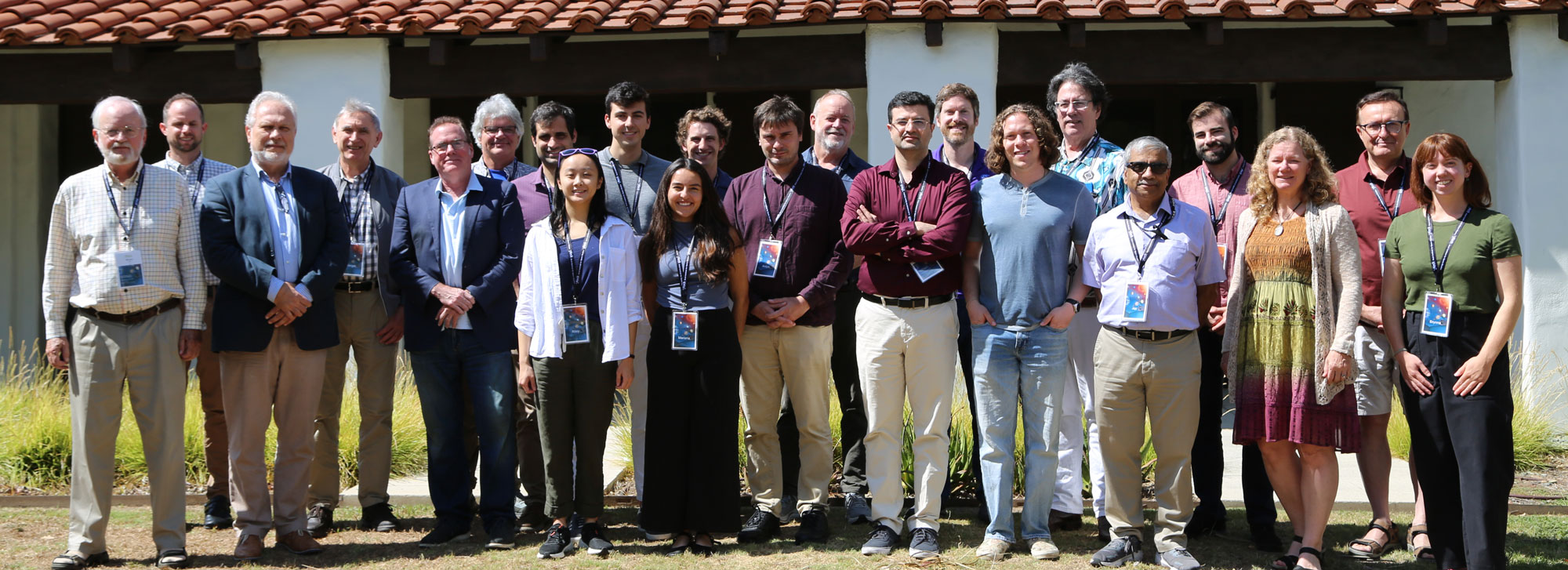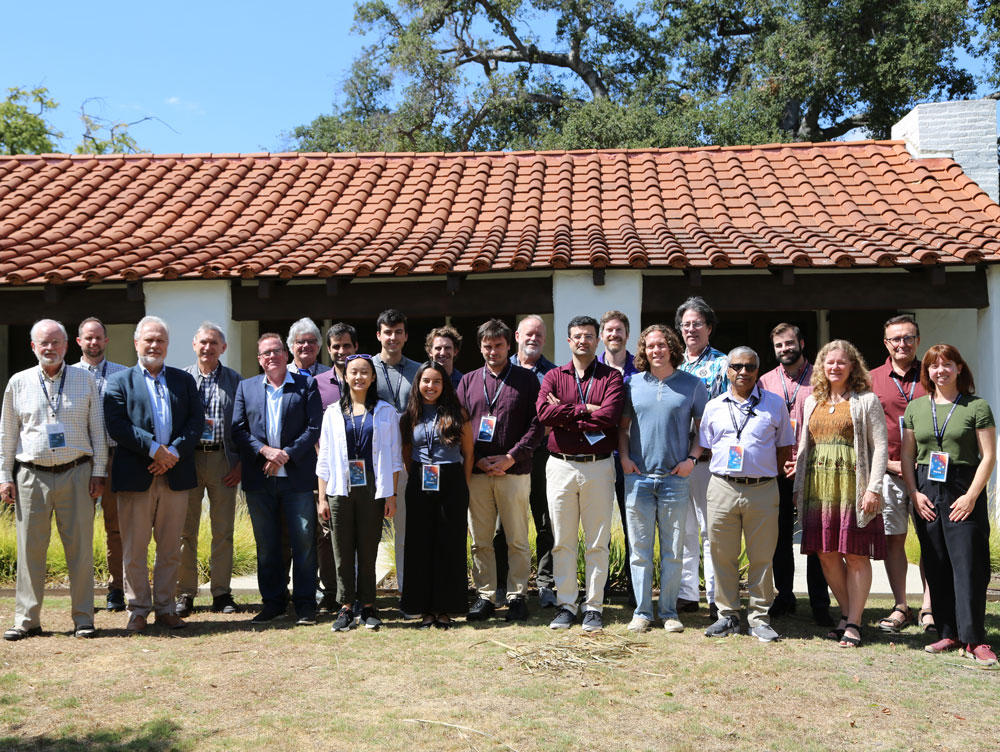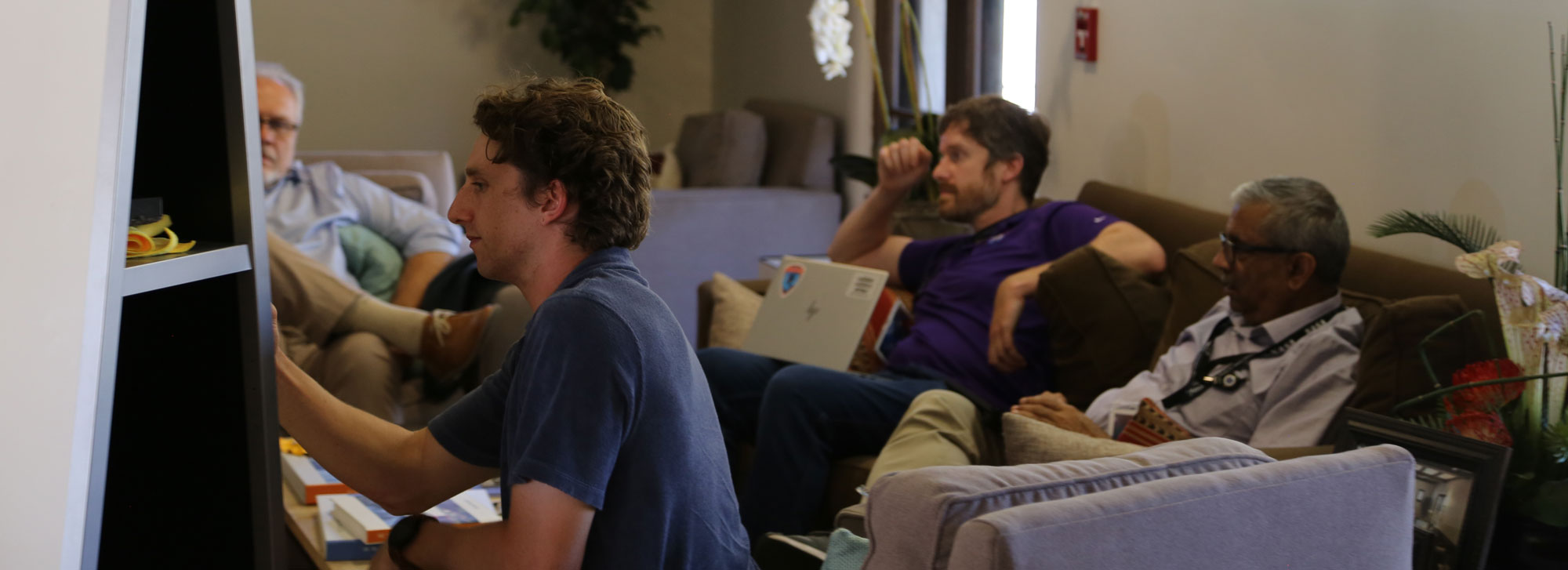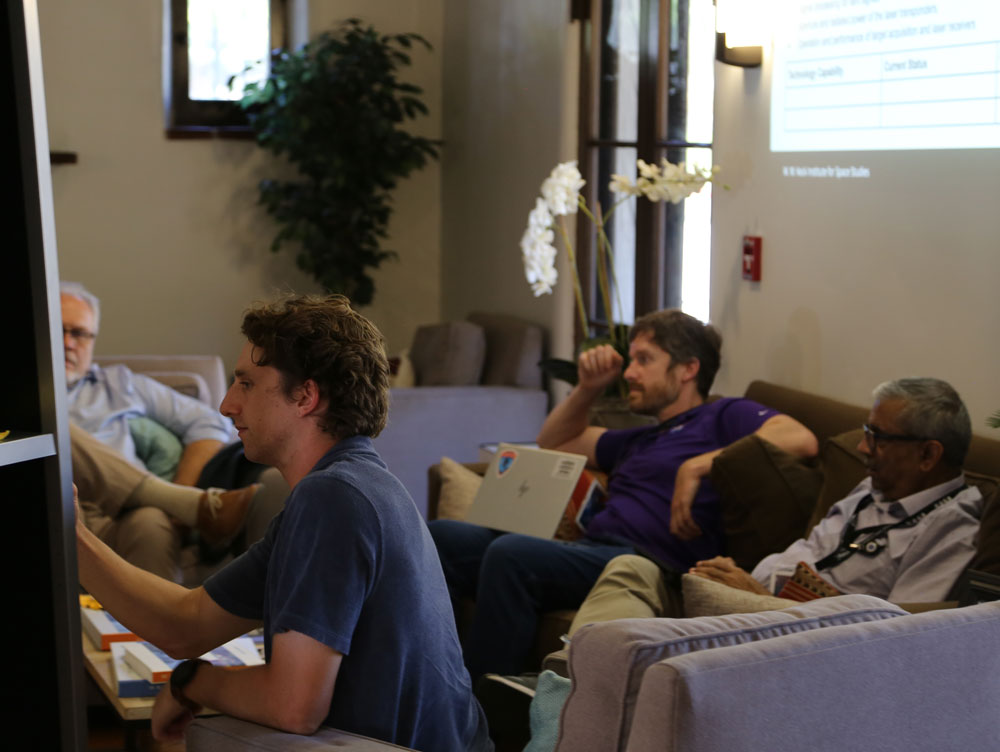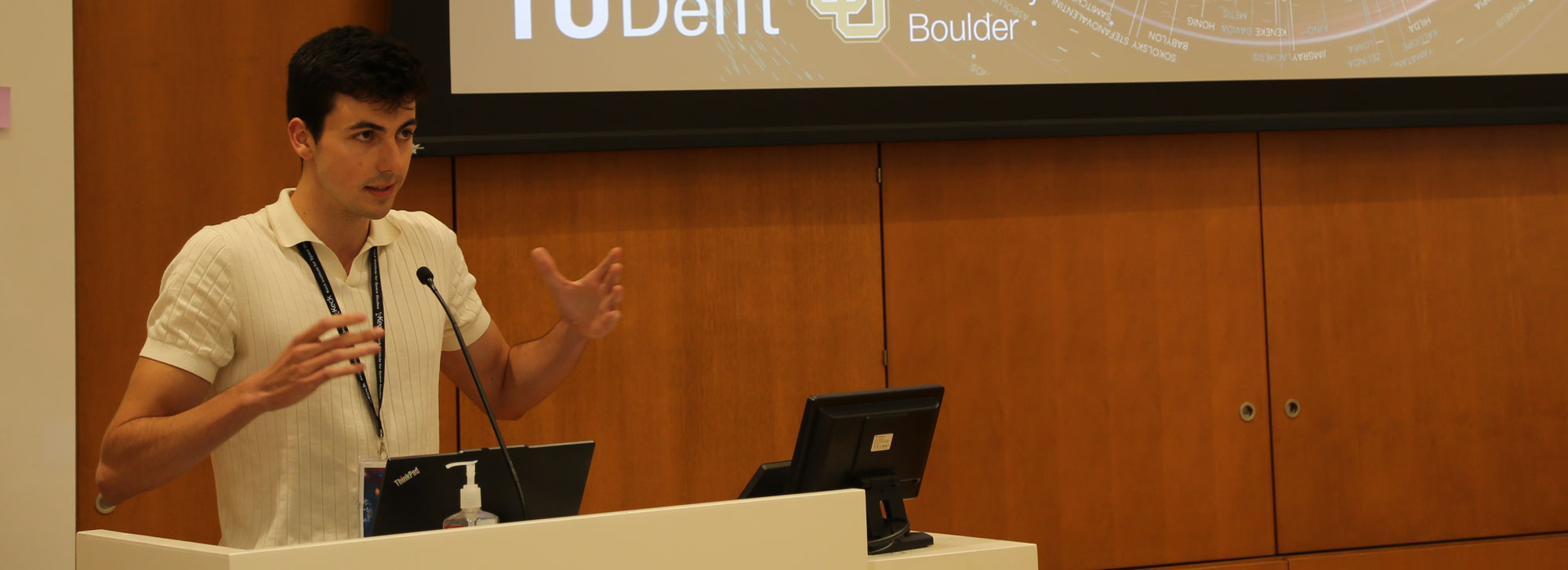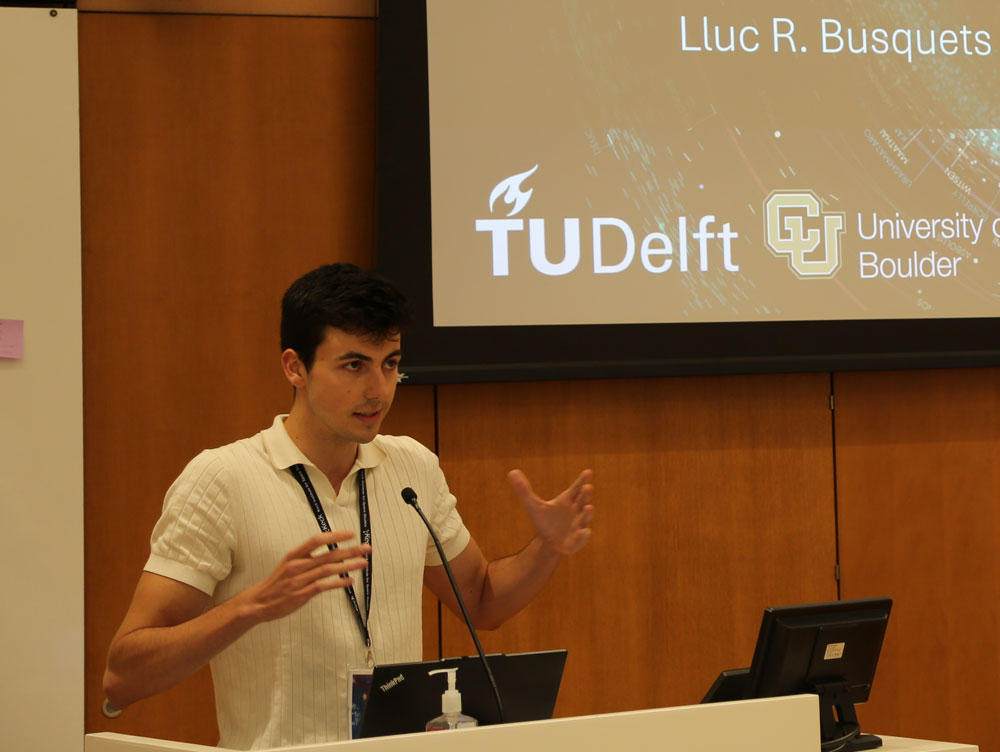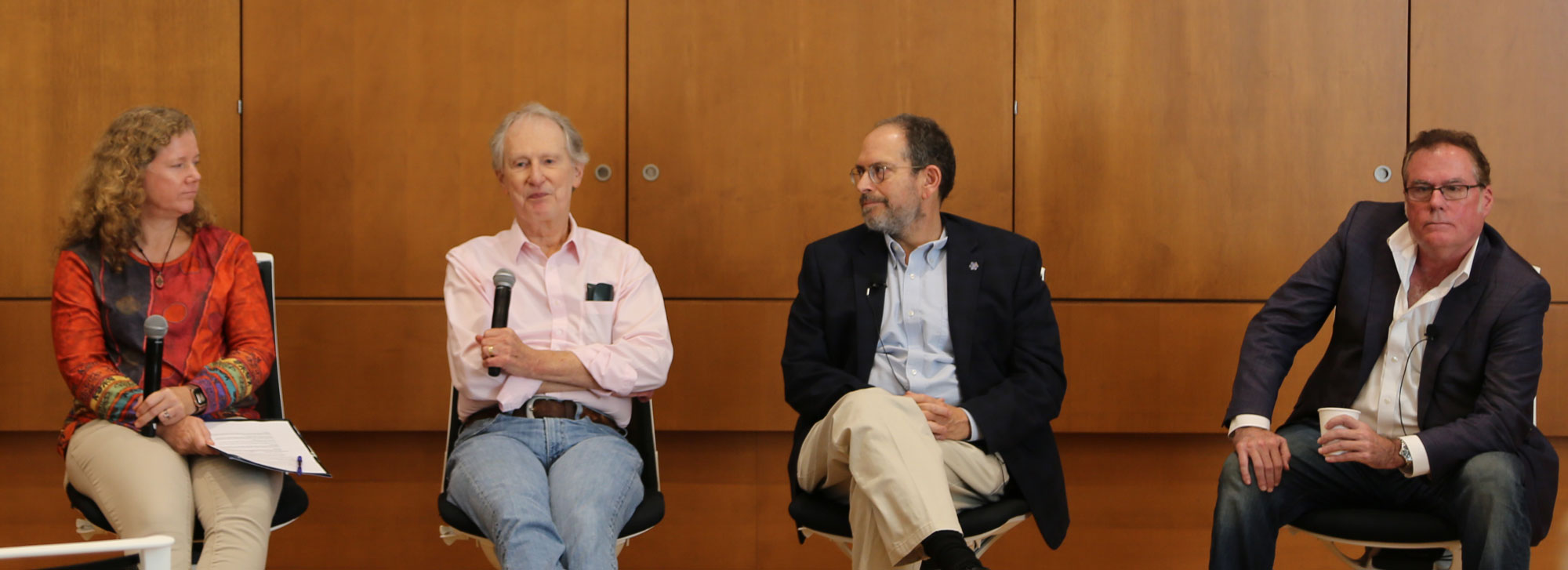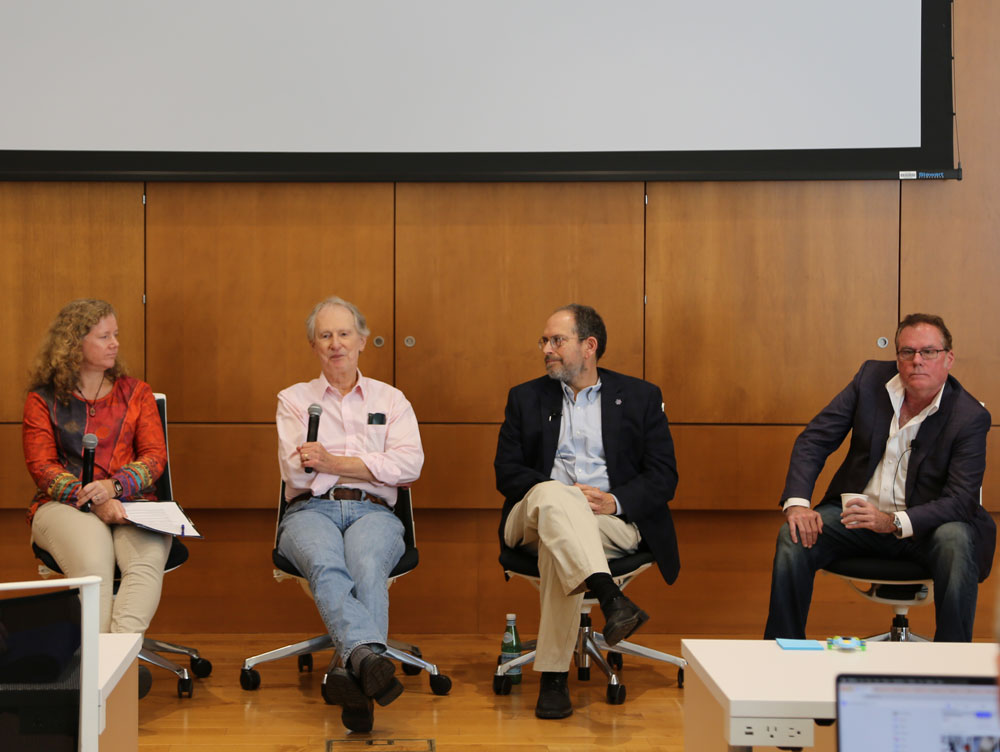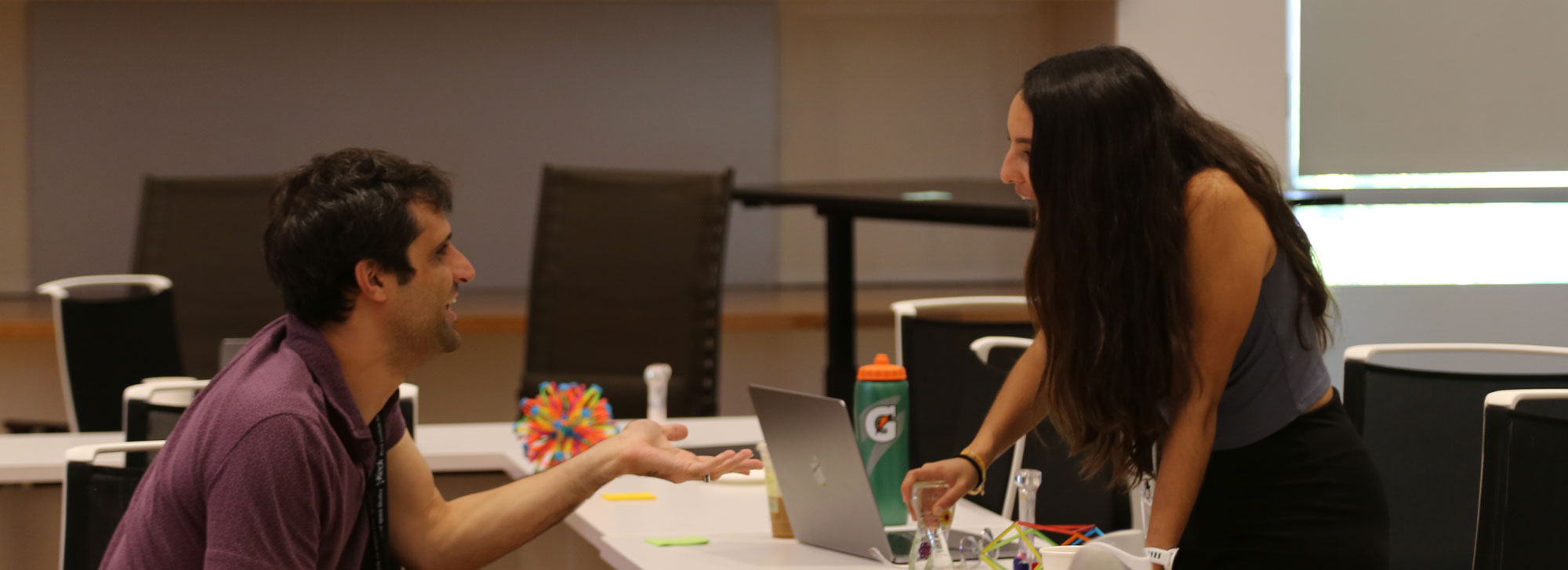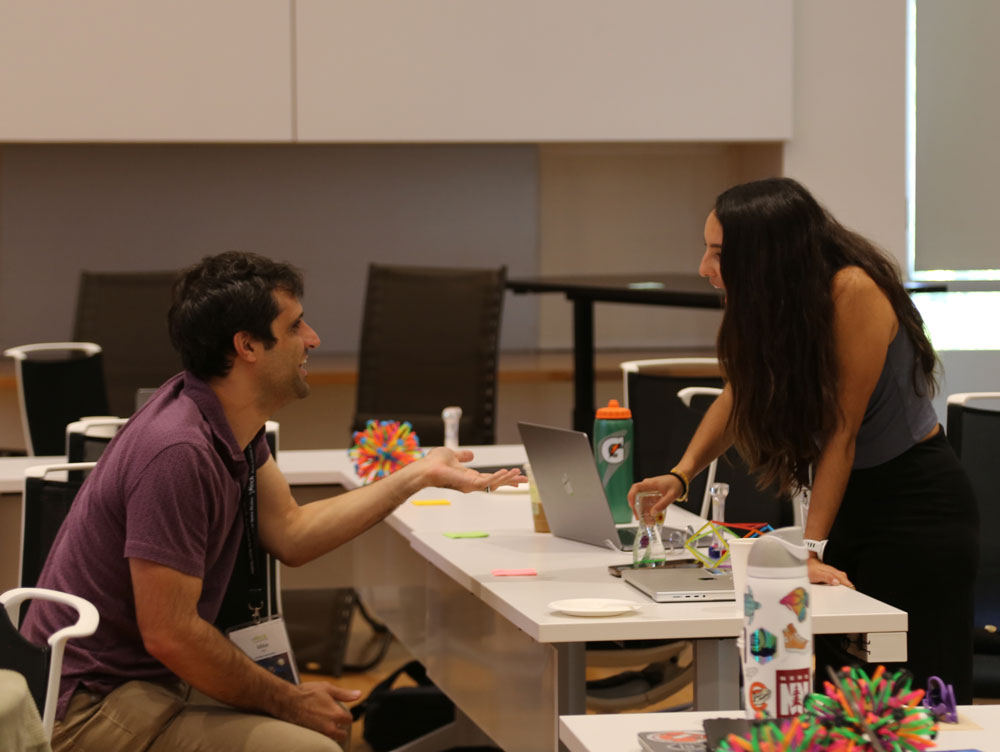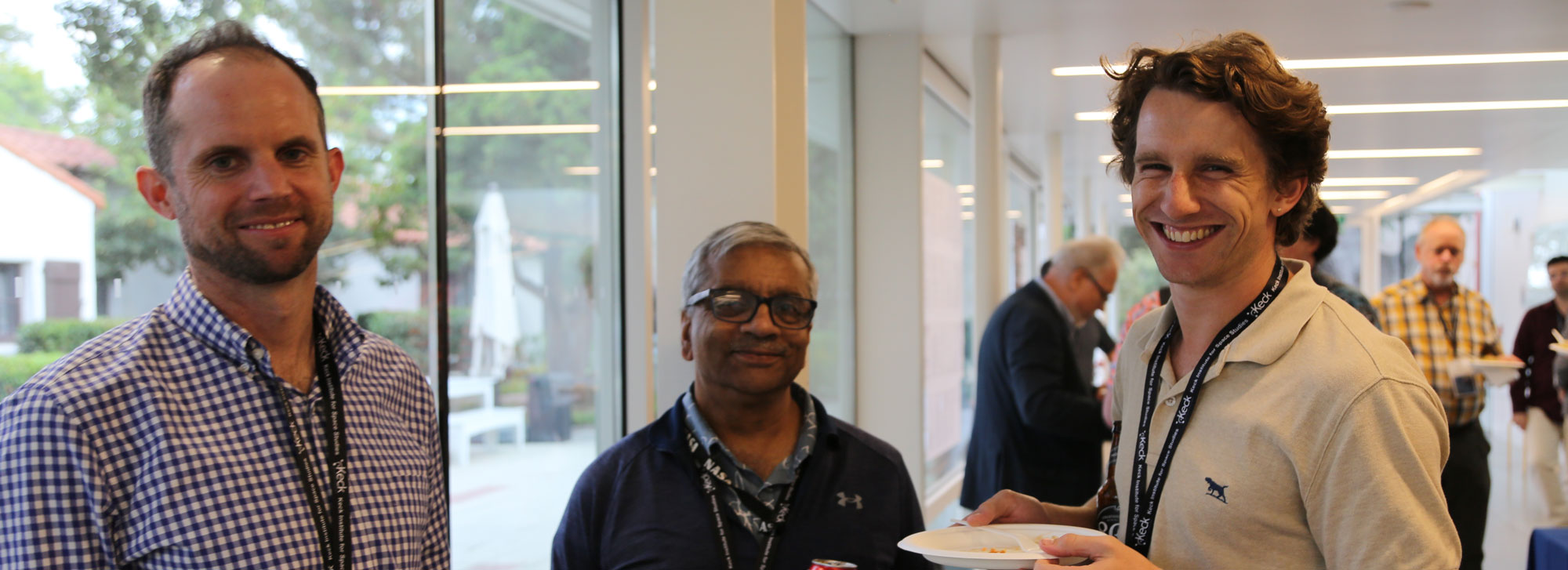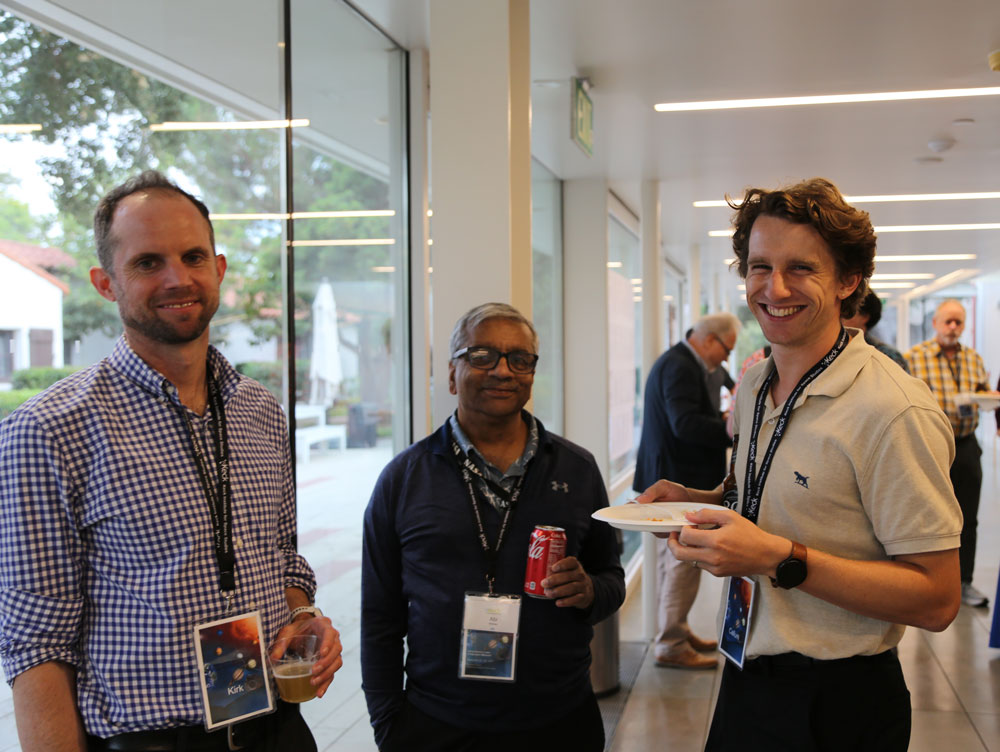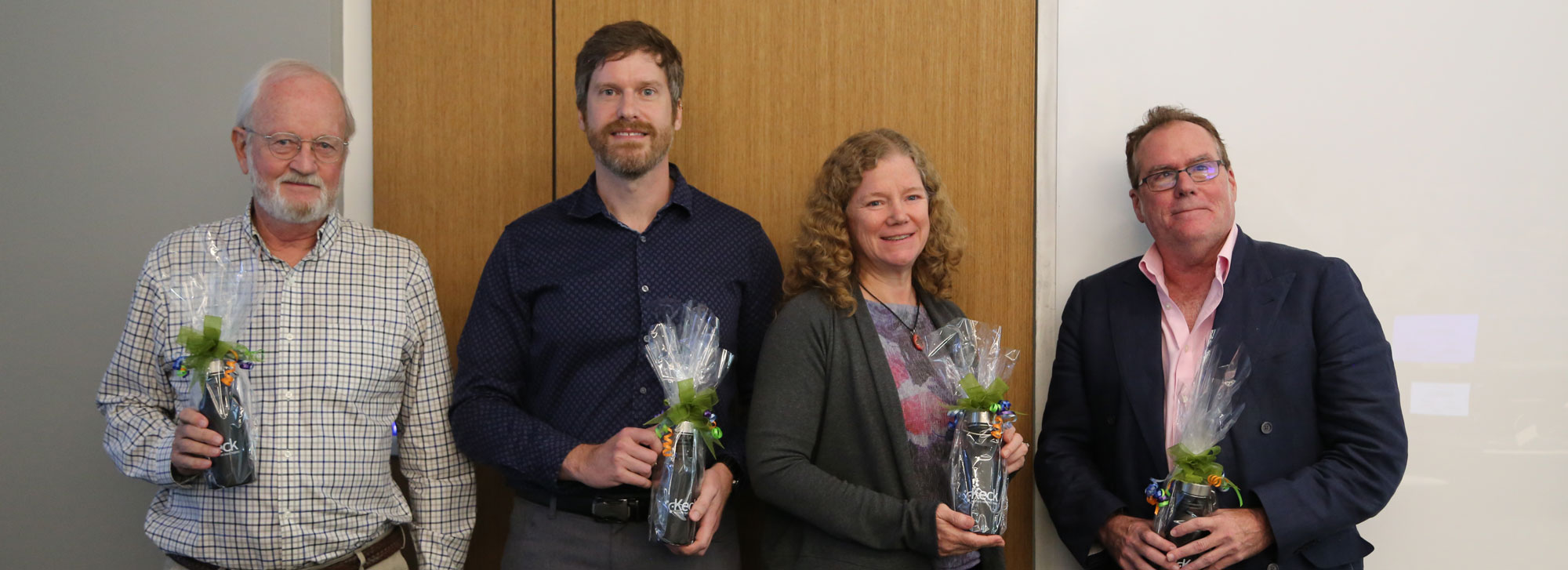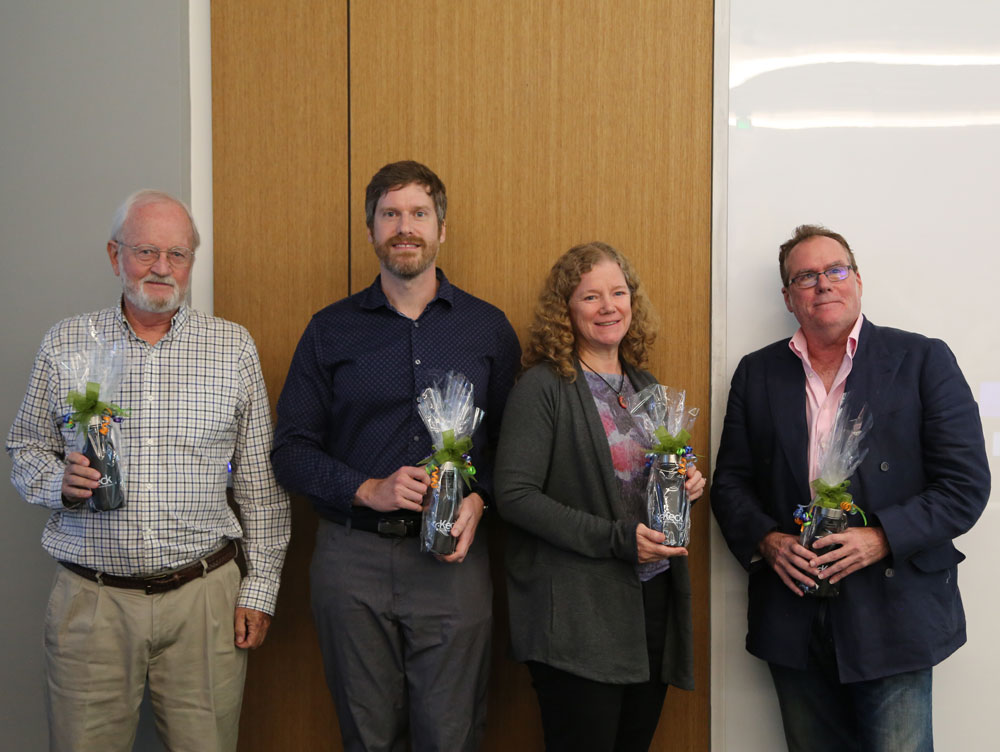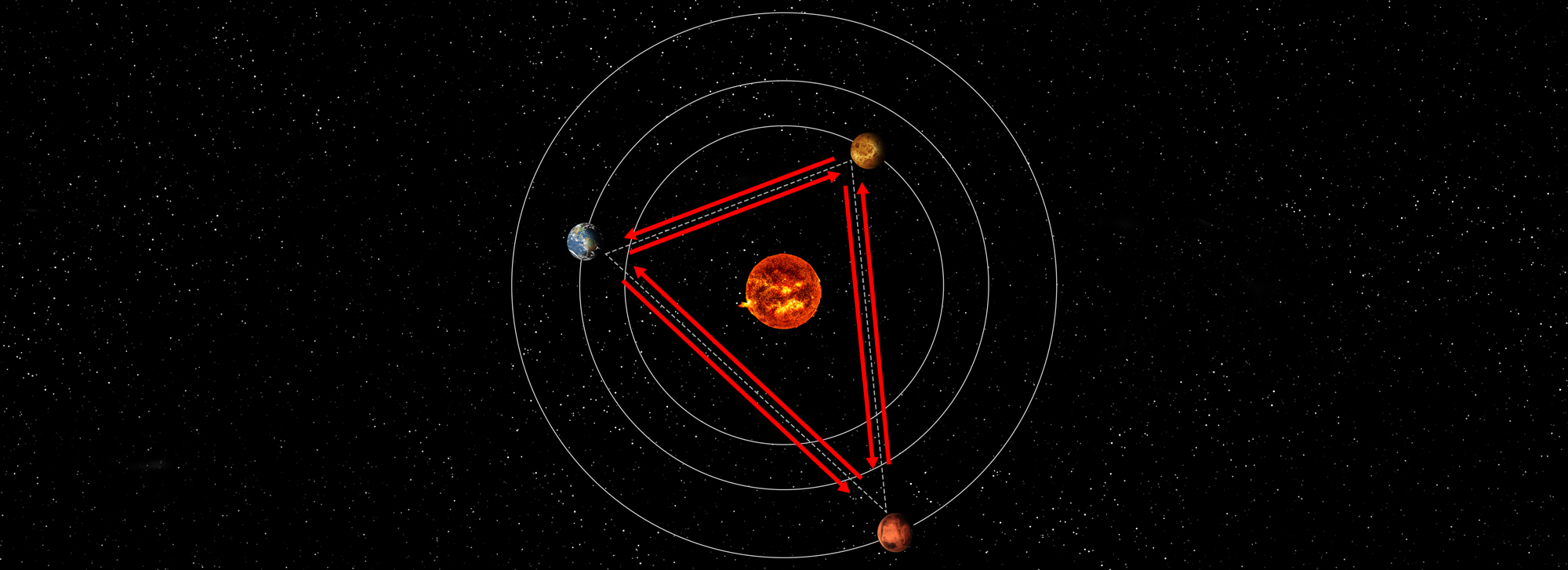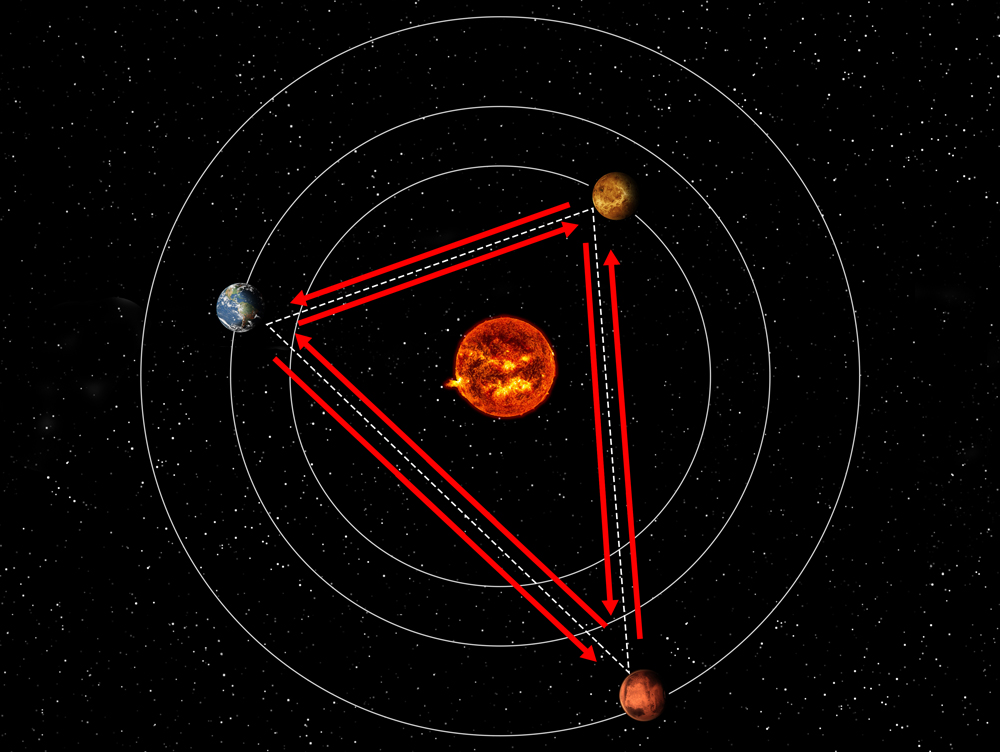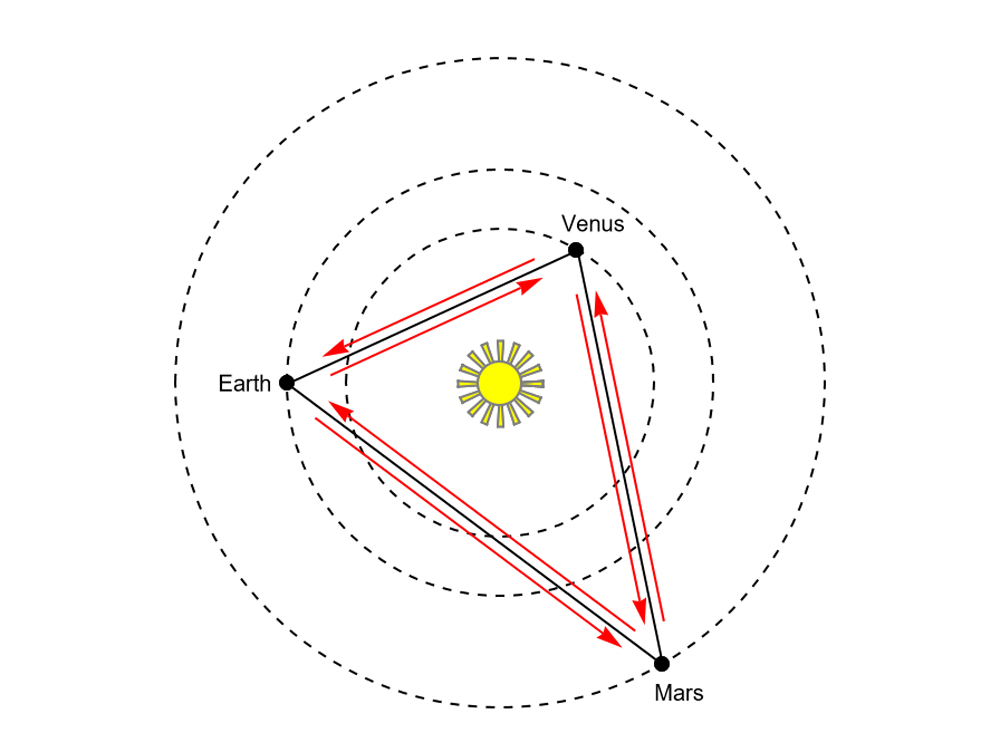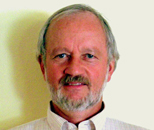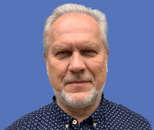Workshop Overview:
While the use of microwave links from Earth-based microwave antennas within the Deep Space Network (DSN), have well served planetary geodesy, navigation, and exploration for more than 50 years, changes associated with an interplanetary laser trilateration network (ILTN) show promise for revolutionary advances in those fields.
The goal of this study program is to develop plans for a future planetary geodesy measurement protocol that would improve the state of the art for planetary ranging by up to three orders of magnitude, using a triad of spacecraft with laser communications deployed in orbit around Venus, Earth, and Mars.
The proposed system would support time-delay interferometry, including a solar-system-scale ring laser gyroscope, which offers ten orders of magnitude improvement over currently-existing systems for rotation rate measurement sensitivity, from a solar system to galactic scale. Furthermore, the ILTN will fill the gap in the ability to observe sources of gravitational radiation with periods between the LISA band (less than a few days) and pulsar timing array bands (more than a few years).
The development of operations in the inner solar system will require improvements in positioning, navigation and timing (PNT) on the Moon and Mars. The ILTN should both support and benefit from PNT developments, such as the LunaNet and future improvements to the Mars Network, providing a reference for and assistance to for improved geodesy and navigation in the inner solar system.
The objectives of this study are to:
- Bring together a group of scientists and engineers with expertise spanning a wide range of topics in the relevant fields.
- Describe and quantify the potential for achieving revolutionary new science, including the possibility of measuring mean galactic rotation rate, gravitational waves, and other applications, which will be enabled by an interplanetary laser trilateration network. A key output of this study will be a comprehensive summary of revolutionary science across different domains that could be enabled by an ILTN.
- Identify (and start to solve) the practical challenges associated with the design, development, and implementation of an interplanetary laser trilateration network.
